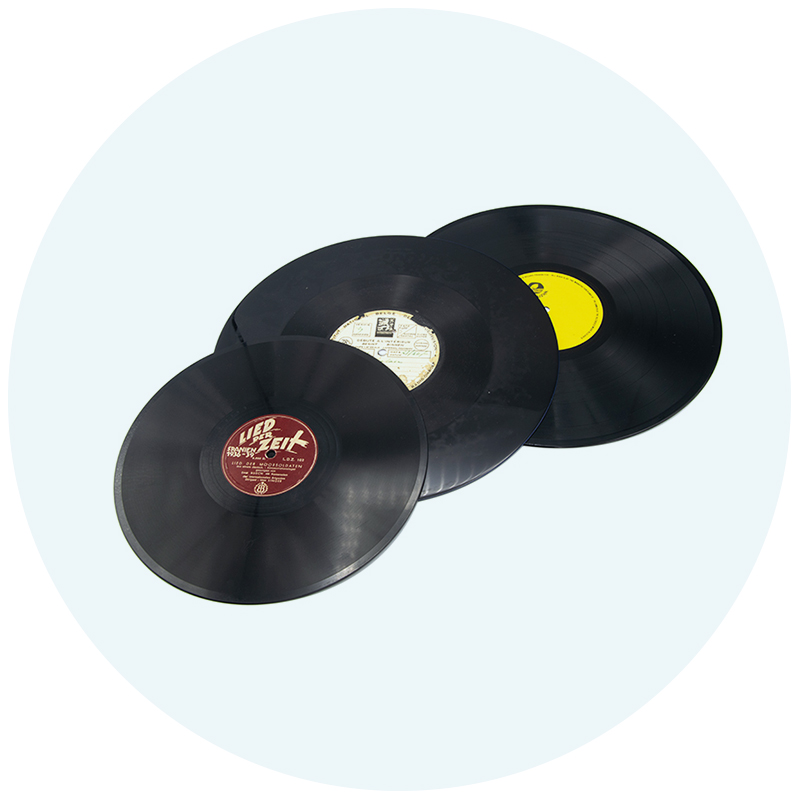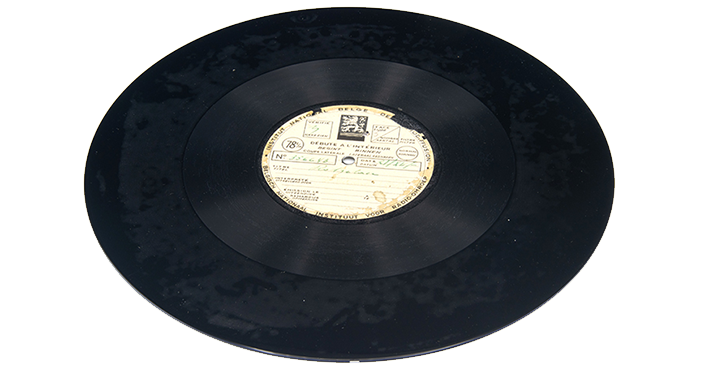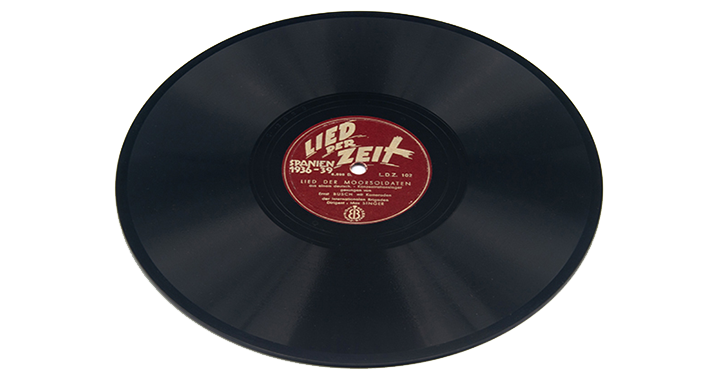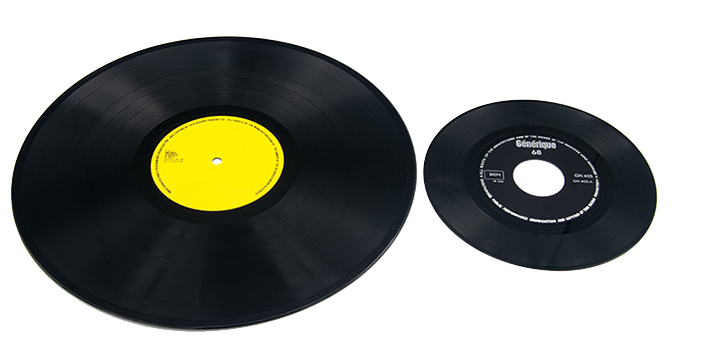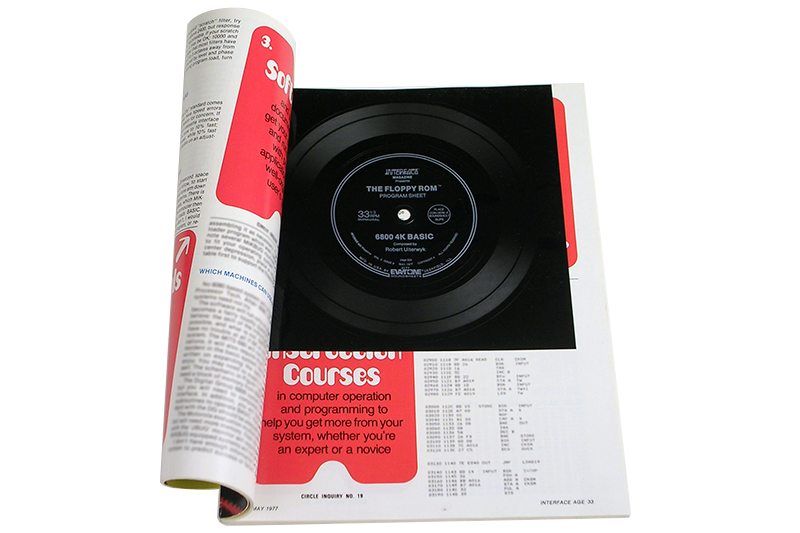Shellac record
The old one
The shellac record is the oldest type of gramophone record. It was used for over 60 years, from 1890 to the end of the 1950s. Compared to modern acetate records or microgroove records, the shellac record has a more matte surface. It is heavier, thicker and less flexible as well.
Formats
Big, bigger, biggest; shellac records come in different sizes. The most common dimensions are 7 inch (17,78 cm), 10 inch (25,4 cm), 12 inch (30,48 cm) and 16 inch (40,46 cm).
Did you know …
… that shellac records are played at 78 revolutions per minute?
The following websites provide more information on this type of gramophone record:
Acetate record
Acetates records were mainly found in the period from 1930-1970. Their composition can vary from time to time. Usually, the core consisted of glass, metal or cardboard. That core was lacquered, after which the sound was engraved in the top layer.
Difference with vinyl and shellac records
Acetate records are heavier than vinyl records, and lighter than shellac records, depending on the material from which the core is made. In general they have a self-written label. This type of gramophone record was not mass-produced and is therefore rather rare.
Did you know …
… that acetate records wear down much quicker than vinyl records because of the fact that they consist of a softer material?
More info on acetate records:
Vinyl record
In 1948 the world became acquainted with vinyl records – popularly known as LPs. There are two different formats: 10 inch (a diameter of 25 cm) and 12 inch (a diameter of 30 cm). Most records are played at 33⅓ revolutions per minute, though there are exceptions.
Vinyl records versus gramophone records
Vinyl records need a smaller groove than shellac and acetate records, so you need a thinner needle to play them.
Singles
Singles form a subcategory within the vinyl records. They only contain a handful of tracks and are played at 45 revolutions per minute. You can find them in all kinds of formats: 14 inch (30 cm), 10 inch (25 cm) and 7 inch (18 cm).
Did you know …
… the area around Charleroi in Belgium was once world-renowned for its high-quality glass plate production?
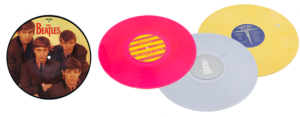
Flexidisc
Did you know …
… you can also get square gramophone records? The thin, flexible records were attached to magazines in the 1960s and 70s as promotional materials, and could be played like a single on a regular record player.
Click on this link for more info about the flexi disc:
*Photo Flexidisc, Public Domain



